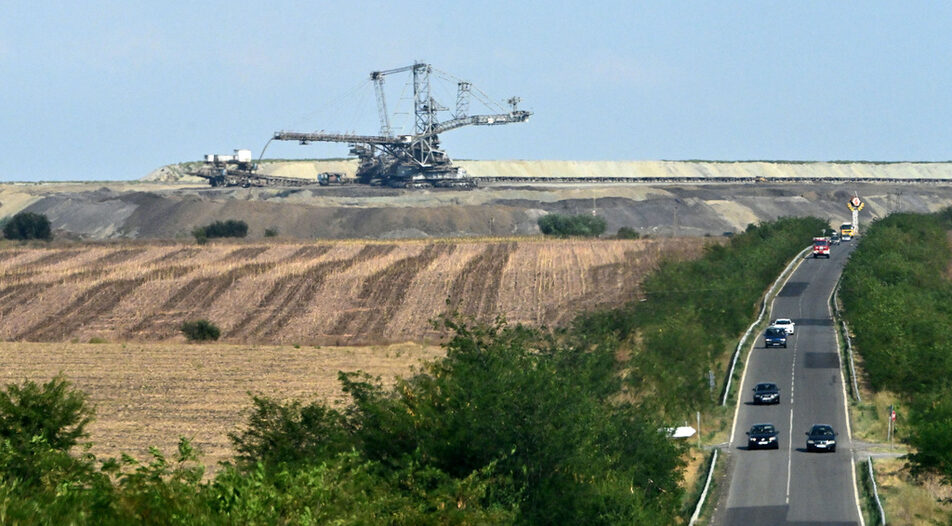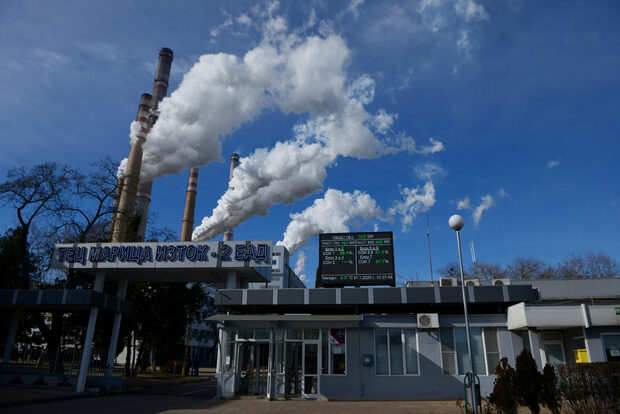After many months of stagnation, a crucial financial mechanism, the Just Transition Funds assigned to the coal regions, could get the green light. If the political situation does not obstruct it, nearly 640 million levs will benefit businesses and individuals in Stara Zagora, Pernik and Kyustendil throughout this year.
The so-called territorial plans for the three regions were approved at the end of last year, handing Bulgaria 1.2 billion euros at the last moment to transform its coal regions. This was a show of good faith from the EC so that Bulgaria did not lose all funds due to it after the delay caused it to forfeit 100 million euros under the Just Transition Fund - part of the Development of the Regions program 2021 - 2027.
The territorial plans are designed to create new jobs and economic dynamics in exchange for phasing out coal and reducing carbon dioxide emissions.
Regardless of the political battles and populist promises, the transformation in the region is ongoing. However, the necessary steps to be followed are not exactly certain. According to estimates from the Ministry of Labor and Social Policy, 15,000 people are directly affected by the abandonment of coal while the number of people and businesses indirectly affected in the coal regions exceeds 30,000.
Funds awaiting
The first wave of procedures is expected in the coming months, the Ministry of Regional Development and Public Works announced.
The first relates to energy renovation support for multi-family residential buildings, including addressing energy poverty. The grant under it amounts to 186.5 million levs.
In June, a procedure for 60 million levs is expected to kick in to enable training for professional qualifications and the retraining of employees in enterprises affected by the climate transition. Then a 1 million levs project will be launched to map the skills of those in areas indirectly affected by the climate transition.
A total of 250 million levs will go towards SMEs to adapt to the economic transition in the fall or by the end of the year. The procedure for constructing industrial and logistics parks via grants of 140 million levs will also start in this period.
What is happening now?
Bulgarian territorial plans for the three coal regions were approved by the EC on December 22, 2023, but their implementation is related to building local partnerships through the creation of subcommittees.
The EC has provided useful guidance in this area. With a decision of the Program Monitoring Committee and based on the experience of other countries, the structure and functions of the sub-committees were approved. This will be jointly managed by the head of the governing body and the regional governors in the three regions, the regional ministry said. Coordination meetings were also held to clarify the commitments and tasks of the local structures.
Procedures for selecting participants in the subcommittees are currently being conducted at regional level. They will include a wide range of representatives and stakeholders close to the people. They will work in cooperation and dialogue with people directly involved in the implementation of the investments from the territorial plans, who know the specifics of the territory concerned and about activities required to support the region's development.
Help for the people
"Does anyone remember 1997 when we worked alongside the International Monetary Fund to prepare the liquidation of underground coal mining and had to come up with a path of either privatization or liquidation? Privatization eventually happened, but the main goal was to save the sector," says Alexander Zagorov from KT Podkrepa trade union.
Today, nearly 30 years on, the situation is completely different. The plans are for this sector to be closed for good by 2038.
Due to the green transition Bulgaria has started mapping the skills and attitudes of those employed in the TPP and coal mines in the Stara Zagora, Kyustendil and Pernik regions. This comes with the help of the two nationally representative trade unions - KNSB and KT Podkrepa.
People can undergo training to update their professional qualifications or start their own business, and get financial and consulting assistance towards new projects and fresh activities.
Information gleaned about available skills and aspirations will be provided to future investors in the three districts, who will receive support from the Fund for a just transition for green investments in the regions. In this way they will be informed about the available workforce in the regions.
However, many experts have criticized the trade union organizations for not reacting in time so that all workers were prepared. Exploiting issues around mining is a common feature of election campaigns. "Most people are very skeptical about the transition," admits Zagorov. He adds that people should not be asked what they would like to do or what new skills they would like to acquire. Instead they should explore prospects for regional development, the economic activities and investors available, and find out how existing businesses could be transformed.
Thermal power plants have some unrealized potential as well. They can change fuel and start using gas, but the question is whether Europe will allow this to happen. For example, will European and national funds be used to finance the restructuring of the TPP Maritsa-East 2? In addition, many of the workers can be employed in rehabilitating the mines, so that these can be used for roads and to construct industrial facilities, among other fields.
A master plan and work on Maritsa-East is urgently needed because many people will be needed to reclaim and restore the mining sites. Those employed in the mines can perform a number of activities such as maintaining the power grids, recultivating the terrain, and building renewable energy sources. In this way there would be no layoffs or pay cuts and the economy would be unimpaired.
After many months of stagnation, a crucial financial mechanism, the Just Transition Funds assigned to the coal regions, could get the green light. If the political situation does not obstruct it, nearly 640 million levs will benefit businesses and individuals in Stara Zagora, Pernik and Kyustendil throughout this year.
The so-called territorial plans for the three regions were approved at the end of last year, handing Bulgaria 1.2 billion euros at the last moment to transform its coal regions. This was a show of good faith from the EC so that Bulgaria did not lose all funds due to it after the delay caused it to forfeit 100 million euros under the Just Transition Fund - part of the Development of the Regions program 2021 - 2027.












